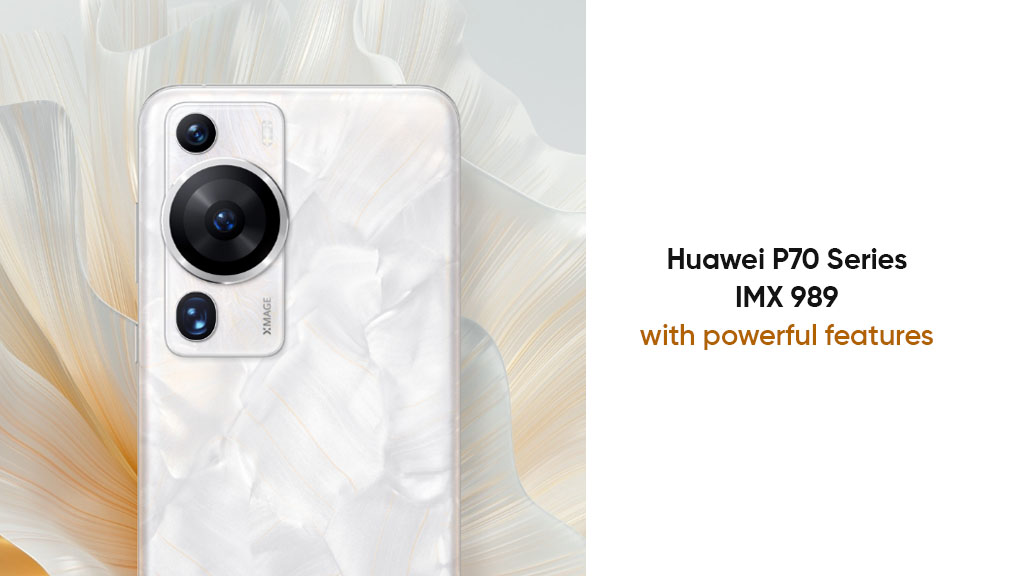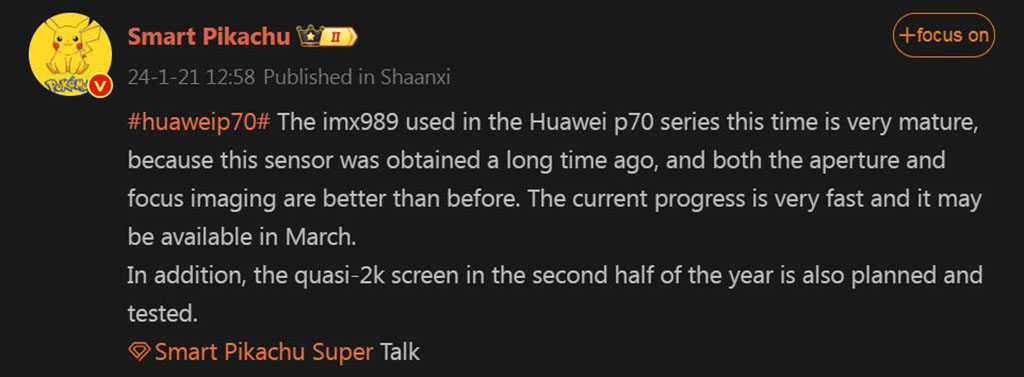Huawei
Huawei P70 series to use IMX 989 camera sensor with better focus capabilities than ever

Huawei P70 series is coming and meanwhile, a new leak sheds light on the IMX 989 camera sensor which is expected to offer much improved focus capabilities than ever. A tipster has added some more details to the optical features of the flagship lineup.
Weibo blogger @SmartPikachu says that the Huawei P70 series is using a fully-developed IMX 989 camera sensor that has significantly enhanced both aperture and focus abilities compared to other optical sensors and premium smartphones.
In addition, the tipster mentioned that the development of the upcoming P-series is in full swing and it could show up officially in March this year. Besides, Huawei is testing a 2K quad-curved screen for flagship models coming in the second half of 2024.
Eventually, it looks like the Chinese tech giant will not only use new but also different camera solutions for all three variants in the Huawei P70 series. Some previous reports predicted that the company is testing the OV50H main camera with variable aperture technology for improved lens performance.
Perhaps, we find the IMX 989 camera sensor with the top models of the P70 lineup whereas, the OV50H could take place in the standard version.

IMX 989 Camera Sensor
The Sony IMX 989 brings a high dynamic range to offer better low-light performance and precise color generation while capturing images. It also supports the Quad Bayer color filter array to optimize light sensitivity and eliminate image noise.
On the flip side, the respective imaging sensor enables strong aperture and focusing capabilities. Thus, users are likely to obtain far better light intakes, clear, and crisp images without any hazy effect on the pictures.
Huawei P60 series:
The ultimate smartphone lineup uses an IMX 888 camera sensor which has a 1/1.43-inch aperture. Compared to the IMX 989, this lens is slightly inferior in terms of image processing and autofocus capabilities.
However, the company is considering new changes over its predecessors this time for bringing robust optical functioning and impressive image results for users.
(Source)






